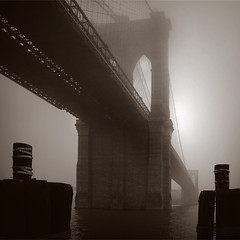 At the end of a 1977 reading of Lord of the Flies, William Golding offered advice to those partaking of his most-famous book. He said:
At the end of a 1977 reading of Lord of the Flies, William Golding offered advice to those partaking of his most-famous book. He said:There have been so many interpretations of the story that I’m not going to choose between them. … The only choice that really matters, the only interpretation of the story, if you want one, is your own. Not your teachers, not your professors, not mine, not a critic’s, not some authority’s. The only thing that matters is first the experience of being in the story, moving through it, then any interpretation you like. If it’s yours, then that’s the right one. Because what’s in a book is not what an author thought he put into it. It’s what the reader gets out of it.If you've ever been browbeaten by a bitter Lit professor, you can appreciate Golding's counsel. Listening to a person in power do violence to a text because of his own agenda is beyond unpleasant. Equally appalling are readers who swallow such skewed stuff, ingesting it in order to expedite a satisfactory grade or out of laziness, viewing stories as irrelevant to the meat of life. Healthy ownership of their own options would go a long way toward rectifying such wrongs.
But surely equating ownership with accuracy is an equal and opposite error. Authors possess a relationship with the text that readers can never have. They conceive it in their minds, birth the initial drafts, midwife it through the revision process and send it out into the world when it's fully grown. They do this because they have something they want to say, some point they want to communicate. Why treat it as though it doesn't exist?
Perhaps it's best to view the text as relating to both parties instead of only one or the other, a bridge stretching from author to reader, a connection drawing them onto common ground -- if they respect its inherent boundaries. Readers need to acknowledge the author's authority; authors need to strive for excellence, remembering that their work isn't solely for their own satisfaction. Golding himself acknowledged at least half of the equation in the same speech, stating, "That, really, is I suppose you could say what the book is about: If you don't have rules, that is to say if you don't have law then you’re lost." I'll venture that something similar holds true for reading and writing. Anarchistic interpretation or composition will shear the bridge straight off, leaving you with only the gulf below, dark and empty and void.
(Picture: CC 2006 by gaspi *your guide)


6 comments:
But there's so much FUN in the void, like degrees in English!
I remember one phenomenally well-read and ferocious professor who insisted on reading English Romantic poetry (Wordsworth, Keats, Coleridge &c.) as Marxist literature since it was influenced by the French Revolution (socialist) and the Communist Manifesto was published in London in 1848.
Needless to say, I learned a lot about the vagaries of capitalism and the glorious goals of communism/socialism in that class. Not so much about literature.
Thrash, blub, thrash, gasp, cough!
For my senior capstone, I had a professor who insisted that we choose a critical theory different from our own when writing our theses. (Quotes: "I don't expect you to become a Marxist overnight" and "I am the god of this class!") We got subject to some incredibly tortured readings by the end. I'm all for creativity; but if we want to be creative, shouldn't we be writing rather than reading?
It's always easier to tear down than to build up.
I believe in historical research and cultural context, but when you start connecting snippets of Gatsby to F. Scott Fitzgerald's beverages of choice 1921-1925 according to his wife's diary, I think you've lost sight of the text. Yeah, it's interesting in the same way that Ripley's and Guiness records are interesting, but it trivia.
Yeah, I'm not at all against approaching the text in a number of ways -- as long as you don't lose sight of what the author wanted to communicate. Like this one single professor enjoyed doing, always highlighting the various Freudian bits and emphasizing sexual imagery. It was really uncomfortable.
Do basic communication and linguistic theory not apply to story/literature? sheesh.
I thought the Romantic poets were a voice in opposition to the philosophical voice of the French Revolution. . .
I guess communism has some glorious goals. . . it's the means of achieving them that are continually abhorrent.
If the reader sees every pen as a penis, s/he'll never look beyond the masturbatory/pleasure/self-aggrandization aspect of writing to the meaning of what's written.
When the Revolution got bloodthirsty, the Romantics stopped supporting it. Wordsworth I know was a big proponent in the early 1790's. I think the shift happened when the ideology and philosophy of Liberty, Equality and Fraternity had to grapple with the reality of humans and humanity.
The same reasons that communism fails.
Post a Comment